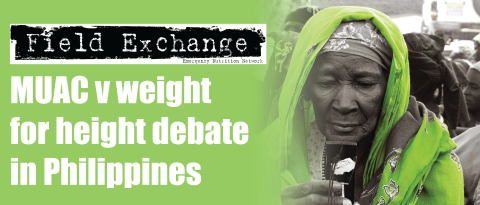Effects of a conditional cash transfer programme on child nutrition in Brazil
Summary of published research1
The Bolsa Familia programme (BFP) in Brazil is the world’s largest conditional cash transfer programme. It reaches 5,564 municipalities in the 27 states of Brazil and about 11 million families (25% of the Brazilian population). The programme guarantees direct cash transfers to: families in poverty or extreme poverty (household income per capita below US$44 and below US$22 respectively in 2005-6), families with children 0-15 years of age and families with a pregnant or lactating woman.

A family enrolled in the cash transfer programme
In 2008, the age group for the children was extended to 17 years. In most cases, the cash transfer is paid to the reference female of the family group. The per capita income cut-offs and the values of cash transferred are readjusted every two years or so, by decree. The value per family depends on the poverty threshold and family composition. No nutrition supplement is distributed.
Once a family enrols, it must comply with certain health and education conditions to remain in the programme: i) a minimum school attendance of 85% of the monthly school hours for children 7-17 years old, ii) a health and nutrition agenda for beneficiary families with pregnant women, breastfeeding mothers or children under 7 years of age (pre-natal care, vaccination, health and nutrition surveillance).
A study that has just been published set out to examine the association between the BFP and the anthropometric indicators of nutritional status in children. Using the opportunity provided by vaccination campaigns, the Brazilian government promotes Health and Nutrition Days to estimate the prevalence of anthropometric deficits in children. Data collected in 2005-6 for 22,375 impoverished children under 5 years of age were employed to estimate nutritional outcomes among recipients of the BFP. All variables under study, namely child birth weight, lack of birth certificate, educational level and gender of family head, access to piped water and electricity, height for age, weight for age and weight for height, were converted into binary variables for regression analysis.

A family enrolled in the cash transfer programme
The subsequent analysis found that children from families exposed to the BFP were 26% more likely to have normal height for age than those from nonexposed families. This difference also applied to weight for age. No statistically significant deficit in weight for height was found. Stratification by age group revealed 19% and 41% higher odds of having normal height for age at 12-35 months and 36-59 months of age, respectively in children receiving the programme and no difference at 0-11 months of age.
The authors of the study note that others studies have found that the Gini index, an indicator of income distribution, remained stable in Brazil for many years but has dropped consistently since 2001. Almost one quarter of the drop is attributable to the BFP. Furthermore, propensity score analysis used in the baseline study for the BFP showed larger family expenditures among enrolled families than in the comparison groups, especially on food (US$172 more a year on food items).
The authors conclude that the BFP can lead to better nutritional outcomes in children between 12-59 months of age. However, longitudinal studies designed to evaluate the impact of the BFP are necessary to determine if the nutritional effects observed in the study can be attributed to the conditional cash transfer programme. Furthermore, there is a need to guarantee families in the BFP increased access to goods and services conducive to improved nutrition, which should in turn result in improved health. Similarly, to guarantee programme effectiveness, the Brazilian government needs to provide more and better services in the spheres of basic education, health, social protection and inclusion in the labour market.
1Paes-Sousa. R, Santos.L and Miazaki. E 2011). Effects of a conditional cash transfer programme on child nutrition in Brazil. Bulletin of the World Health Organisation 2011; 89: 496-503. Published online: 29th April 2011
Imported from FEX website


